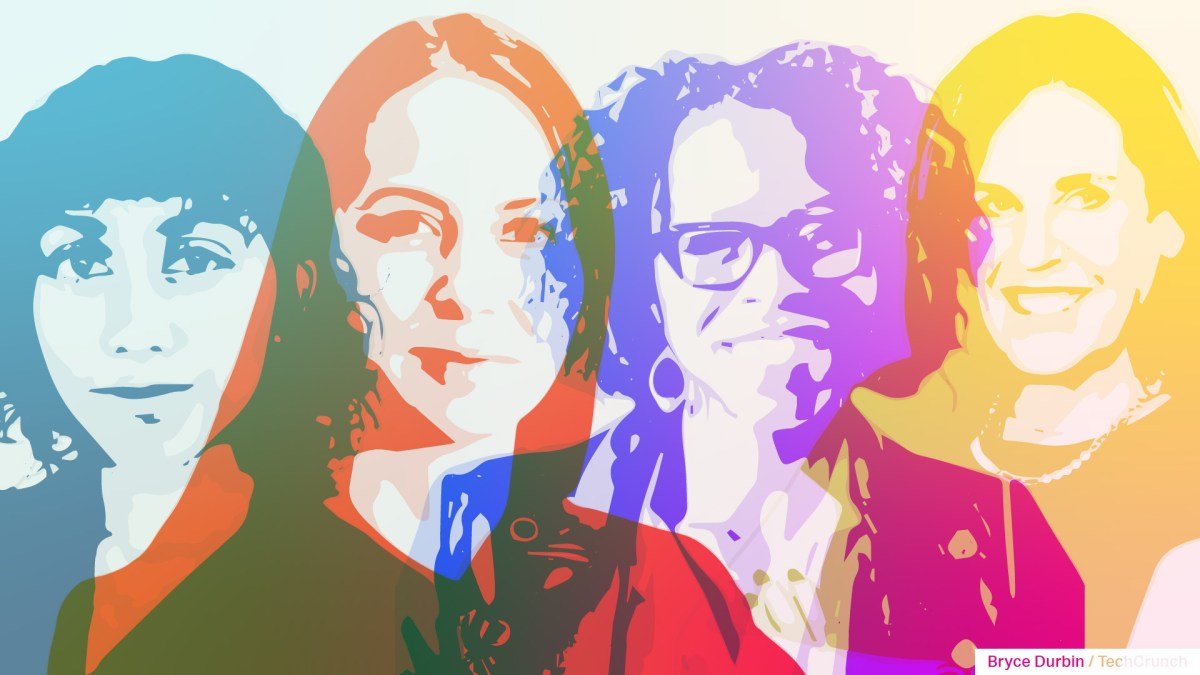To give AI-focused women academics and others their well-deserved — and overdue — time in the spotlight, TechCrunch is launching a series of interviews focusing on remarkable women who’ve contributed to the AI revolution. We’ll publish several pieces throughout the year as the AI boom continues, highlighting key work that often goes unrecognized.
If you’d like to read more profiles, click here.
If you see a name we’ve missed and feel should be on the list, please email us and we’ll seek to add them.
Here are some key people you should know:
- Elaine Rich, retired computer scientist formerly at the University of Texas at Austin, and published one of the first textbooks on AI in 1983
- Cynthia Dwork, Harvard professor who made waves in the fields of AI fairness, differential privacy and distributed computing decades ago
- Cynthia Breazeal, roboticist and MIT professor, and co-founder of Jibo, the robotics startup, who worked on developing one of the earliest “social robots” in the late 90s and early 2000s
Despite the many ways in which women have advanced AI tech, they make up a small fraction of the global AI workforce. According to a 2021 Stanford study, just 16% of tenure-track faculty focused on AI are women. In a separate study released the same year by the World Economic Forum, only 26% of analytics-related and AI positions are held by women.
In worse news, the gender gap in AI is widening — not narrowing.
Nesta, the U.K.’s innovation agency for social good, conducted a 2019 analysis that concluded the proportion of AI academic papers co-authored by at least one woman hadn’t improved since the 1990s. As of 2019, just 13.8% of the AI research papers on Arxiv.org, a repository for preprint scientific papers, were authored or co-authored by women, with the numbers steadily decreasing over the preceding decade.
The reasons for this disparity are many. But a Deloitte survey of women in AI highlights a few of the more prominent (and obvious) ones, including judgment from male peers and discrimination as a result of not fitting into established male-dominated molds in AI.
The Gray Lady broke down how the current boom in AI came to be — highlighting many of the usual suspects like Sam Altman, Elon Musk and Larry Page. The journalism went viral — not for what was reported, but instead for what it failed to mention: women.
It starts in college: 78% of women responding to the Deloitte survey said they didn’t have a chance to intern in AI or machine learning while they were undergraduates. Over half (58%) said they ended up leaving at least one employer because of how men and women were treated differently, while 73% considered leaving the tech industry altogether due to unequal pay and an inability to advance in their careers.
The lack of women is hurting the AI field.
Nesta‘s analysis found that women are more likely than men to consider societal, ethical and political implications in their work on AI — which isn’t surprising considering women live in a world where they’re belittled on the basis of their gender, products in the market have been designed for men and women with children are often expected to balance work with their role as primary caregivers.
TechCrunch‘s humble contribution — a series on accomplished women in AI — will hopefully help move the needle in the right direction. But there’s clearly a lot of work to be done.
Each of the women profiled have suggestions for those looking to improve the AI field. But a common thread runs throughout: strong mentorship, commitment and leading by example. Organizations can affect change by enacting policies that elevate women already in, or looking to break into, the AI industry. And decision-makers in positions of power can wield that power to push for more diverse, supportive workplaces for women.
Remember, every revolution begins with a small step.








